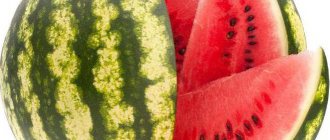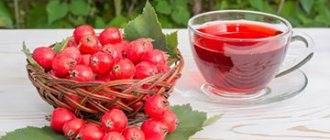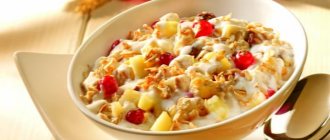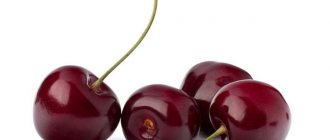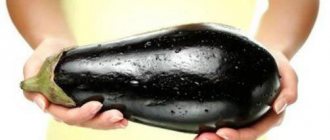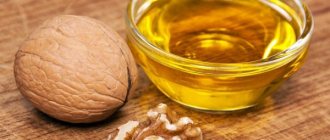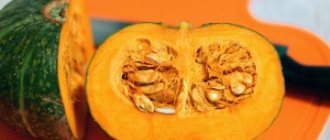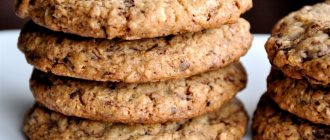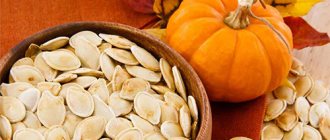Raspberries in various dishes
When a woman feeds a baby, all the beneficial substances are sucked out of her body.
If they are deficient, an imbalance may occur, which will lead to the development of various diseases. In this case, the woman constantly wants to eat everything sweet. To solve the problem, you should eat jam. Minimal risk of developing allergies in apple composition. Raspberry and currant jam should be gradually introduced into the diet. Most often, a negative reaction in a baby’s body occurs to apricots, strawberries and cherries. Raspberries are allowed for children up to one year old, but they can be included in the diet no earlier than the baby is 6 months old. In this case, you should carefully monitor the condition of the child’s skin. Even with minor symptoms of diathesis, the berry is completely excluded from the diet. Tea is also gradually being introduced into the diet. You should start with one teaspoon per day. Next, carefully monitor your baby’s reaction. It is best to start eating berries that were grown yourself or purchased from trusted gardeners. During lactation, you should never buy questionable preserved food without the appropriate documents from the seller.
Raspberry compote has a positive effect on the body of mother and child. A large amount of vitamins and minerals are found in fresh berries. In winter, it is best to include a frozen version of raspberries in your dishes. Reviews indicate that the fruit helps to easily cope with the symptoms of colds. For this purpose, you can prepare jam or jam yourself.
It is very tasty, but does not contain any components beneficial to the body.
Mask against hair loss
Ingredients:
- raspberry juice - 2 tbsp;
- olive oil - 1 tbsp;
- egg - 1 piece;
- pea flour - 2 tbsp.
How to prepare: Mix all ingredients. Whisk.
How to use: Apply the prepared mixture to your hair. After 30 minutes, rinse with shampoo.
kidney diseases.
Raspberry jam: benefits for a young mother
If the mother does not have an allergy to berries, then most likely the child does not have one either (see also: what pills are there for allergies during breastfeeding?). A nursing mother should not eat newly made jam. Also prohibited are delicacies that were stored in improper conditions or were not cooked according to technology. Pediatricians do not recommend eating fresh ground berries with sugar, but this depends on the susceptibility of the woman and child. A small dose of spoiled jam will worsen the well-being of both and affect lactation.
Good jam will help get rid of colds, especially at high temperatures, because a nursing mother should not take aggressive medications (we recommend reading: what medications can be taken for colds while breastfeeding?). The main thing is to drink a lot of plain water first, and then a cup of tea with raspberries. This will allow the body not to lose heat sharply, because such jam is an excellent diaphoretic. Vitamin C, which is contained in raspberries, helps a woman strengthen her immune system and resist viral infections in the autumn-winter period.
Another advantage of the berry is the removal of toxins from the body. It promotes blood clotting, prevents anemia and regulates the process of hematopoiesis, which is very important for young mothers. Pediatricians and therapists unanimously prescribe this jam for problems with the musculoskeletal system. Its diuretic properties are also known.
The best option is to add it to a drink.
Danger and rules for consuming raspberries during breastfeeding
Berries are considered a storehouse of vitamins and minerals, so many women are interested in whether it is possible to eat raspberries while breastfeeding? The main danger of its use during breastfeeding lies in the high probability of developing allergic manifestations in the baby. Therefore, this product is approved for administration 3 months after the birth of the child, not earlier. During this time, the child’s body will be able to adapt to new living conditions and the digestive system will become stronger. The introduction of the product should begin with the consumption of 1 - 2 fresh berries in the morning, after which for 2 - 3 days it is necessary to monitor possible changes in the baby’s well-being.
Important! It is necessary to take a two- or three-day break between meals of unfamiliar food.
If your baby develops itchy rashes on the skin, swelling, redness, runny nose, cough, or changes in stool consistency, you need to exclude raspberries from the menu and it is advisable to switch to a hypoallergenic diet. If painful symptoms do not disappear, you should seek medical help.
Can I have raspberries while breastfeeding?
Many girls are afraid to eat fruits and berries during breastfeeding.
Raspberry is a female berry
In addition to the usual red ones, there are yellow, black and purple varieties in the world. There are a lot of raspberries in Russia; they can be considered a national treasure. Raspberry berry is a symbol of love, prosperity and pleasure. Stable associations have developed for a reason; forest and garden berries have many advantages.
- The berries contain 11% sugars, 100 g contain only 40 kcal, that is, the product is dietary and cannot spoil the figure.
- Raspberry fruits and leaves are rich in organic acids and vitamins; their richness in ascorbic acid is especially appreciated. Regular moderate consumption of raspberries ensures the functionality of the brain and heart muscle, prevents kidney disease, anemia, and lowers blood pressure.
- Raspberry tea, brewed dried raspberries and leaves are widely used as an antipyretic and diaphoretic.
- Copper will help cope with irritability, despondency and reduced emotional levels. Eating raspberries for a nursing mother is useful for overcoming fatigue, which is essential in the first months of motherhood.
- Fiber activates the intestines, and pectin helps cleanse it of toxins and putrefactive bacteria. Seasonal consumption of fresh raspberries helps rid the body of everything unnecessary, so it is advisable for a nursing mother to eat raspberries.
- Raspberries are one of the few fruits that contain vitamin D. The concentration of this vitamin is high enough that delicious raspberries can be substituted for fish oil.
- Coumarins and potassium in berries are necessary for the elasticity of blood vessels and heart function, normal blood clotting and the prevention of blood clots.
- Iron, magnesium and copper are useful for hematopoiesis, without which the formation of hemoglobin is impossible.
This list of positive factors allows us to answer in the affirmative the question whether raspberries and dishes made from them can be consumed by nursing mothers.
Diseases of the gastrointestinal tract.
Useful properties of raspberries
The combination of all the chemicals contained in raspberries affects literally all systems of the body. It normalizes the body's hormonal levels, eliminates pain in the abdominal area and effectively improves overall well-being.
But this is just the beginning of the pleasant properties of raspberries:
- Anthocyanin in the berry strengthens the walls of blood vessels and capillaries;
- Reduces unpleasant sensations from joint pain;
- Maintains a cheerful mood;
- Normalizes the condition of hair and nail plates;
- Improves digestion and metabolic processes;
- Relieves dark circles under the eyes caused by lack of sleep;
- Strengthens the body's immune system;
- Eliminates vomiting and diarrhea;
- Cleanses the blood of toxins and removes potentially dangerous waste from it;
- Tones the skin with swelling and stretch marks;
- Lemon, apple and salicylic acid help destroy bacteria and germs;
- Lowers body temperature in case of illness.
The recommended amount of raspberries per day does not exceed 50 grams, which is approximately equal to three tablespoons.
Danger and rules for consuming raspberries during breastfeeding
Berries are considered a storehouse of vitamins and minerals, so many women are interested in whether it is possible to eat raspberries while breastfeeding? The main danger of its use during breastfeeding lies in the high probability of developing allergic manifestations in the baby. Therefore, this product is approved for administration 3 months after the birth of the child, not earlier. During this time, the child’s body will be able to adapt to new living conditions and the digestive system will become stronger. The introduction of the product should begin with the consumption of 1 - 2 fresh berries in the morning, after which for 2 - 3 days it is necessary to monitor possible changes in the baby’s well-being.
Important! It is necessary to take a two- or three-day break between meals of unfamiliar food.
If your baby develops itchy rashes on the skin, swelling, redness, runny nose, cough, or changes in stool consistency, you need to exclude raspberries from the menu and it is advisable to switch to a hypoallergenic diet. If painful symptoms do not disappear, you should seek medical help.
You should not eat this berry if you have diabetes because of the high content of sugar compounds and purines. It is strongly recommended not to drink concentrated juices, teas, raspberry tinctures if you have gastritis and/or erosions on the gastrointestinal mucosa.
It is very important not to overeat during lactation. The permissible daily intake is 50 g of berries (3 tbsp.). Before eating, the berries should be thoroughly washed in clean water.
Can a mother eat raspberries while breastfeeding a newborn?
During natural feeding, a nursing woman is attentive to the preparation of her menu. This is due to the direct dependence of the baby’s health on the food consumed by the mother. After all, all the foods that a woman eats enter the child’s body through breast milk. The digestive system of a newborn is not able to digest and assimilate most of the dishes that a young mother is accustomed to, since the child’s gastrointestinal tract is still weakened and not fully formed.
In the first months of lactation, you should not eat berries, including raspberries. Such food is classified as natural allergens. The fruits of the plant in question are allowed to be introduced starting from the age of three months. By this time, the child’s gastrointestinal tract will become stronger, and the likelihood of allergic manifestations will decrease.
Answering the question whether a nursing mother can eat raspberry jam, it can be noted that this berry will help nourish the body of a woman and baby with vitamin C, which helps improve immune properties. This makes it possible to avoid colds. When breastfeeding, raspberry jam can be replaced with berries mixed with granulated sugar. This sweet ingredient is a natural preservative that helps the fruit stay fresh for a long time. This delicacy can be frozen. Regular consumption of raspberries improves the structure of hair and skin, and creates a healthy, light glow on the face.
Can a nursing mother drink raspberries or raspberry leaf tea?
During breastfeeding, pediatricians recommend including drinks with raspberries in the menu. This can be tea made from dried leaves and fruits, warm fruit juice or compote. Doctors are convinced that such use of raspberries will reduce the likelihood of a negative reaction in the baby, since less of the allergen (natural dye) remains in the drink. These substances are able to penetrate into the child's body through mother's milk.
If your baby develops a rash after the introduction of fresh berries, you can try tea made from raspberry leaves. The drink is not inferior to fruits in terms of the amount of useful microelements; it will help prevent the development of a negative response. In addition, many women drink raspberry tea before childbirth to enhance uterine contractions, thereby speeding up the process of giving birth. This drink also prevents the development of pathological processes in the female organs, quickly restores the reproductive system after childbirth, stimulates the production of mother's milk, and helps in getting rid of unwanted pounds. An infusion of raspberry leaves should be used during breastfeeding to eliminate diarrhea.
Raspberries during breastfeeding will perfectly complement the main menu of a nursing mother. The berry has many positive qualities necessary for mother and child. However, before use, the mother should familiarize herself with the contraindications and possible side effects.
Can a nursing mother eat raspberries?
All iLive content is reviewed by medical experts to ensure it is as accurate and factual as possible.
We have strict sourcing guidelines and only link to reputable sites, academic research institutions and, where possible, proven medical studies. Please note that the numbers in parentheses ([1], [2], etc.) are clickable links to such studies.
If you believe that any of our content is inaccurate, out of date, or otherwise questionable, please select it and press Ctrl + Enter.
- Benefit
- Contraindications
Nutrition during lactation should be balanced and safe. Let's consider the beneficial properties of raspberries during breastfeeding and the rules for its use.
A tasty and healthy seasonal berry used in folk medicine, cosmetology and even dietetics is raspberries. Such popularity and versatility is explained by its composition:
- Sugar.
- Essential oils.
- Organic acids (salicylic, malic, citric, tartaric).
- Tannins.
- Vitamins (A, group B, C).
- Minerals.
But despite such a rich composition, some doctors claim that raspberries are contraindicated during lactation, like other vegetables, fruits and red berries. The ban is explained by the imperfection of the child’s enzyme system, which is not able to digest the active substances that enter his body with milk. But this only applies to newborns under 3-4 months, that is, during the rest of the breastfeeding period, the mother can eat raspberries. Moreover, the berry has a positive effect on the body:
- Fights cold symptoms, cough and fever.
- Strengthens the immune system.
- Reduces blood cholesterol levels.
- Strengthens the cardiovascular system.
- Normalizes appetite.
- Improves mood.
- Restores hormonal levels.
Not only berries, but also raspberry leaves have beneficial properties. They are the basis of many traditional medicine recipes, allowing them to replace pharmaceutical drugs during lactation.
All iLive content is reviewed by medical experts to ensure it is as accurate and factual as possible.
Useful properties of raspberries
It is advisable to start introducing raspberries into the menu when the child reaches 3 months of age. This berry contains a large number of microelements and has many beneficial properties:
- slowing down the aging process;
- prevention of the development of malignant tumors;
- assistance in losing excess weight;
- increasing protective qualities;
- improvement of visual function;
- normalization of blood clotting;
- relief of inflammatory processes;
- therapy and prevention of colds;
- ensuring the growth and development of the baby;
- stimulation of breast milk production;
- improving mood, saturating the body with energy, treating stressful conditions;
- lowering the level of “bad” cholesterol;
- stabilization of appetite;
- elimination of swelling, normalization of kidney function;
- restoration of hormonal balance.
It is recommended to start introducing berries during breastfeeding with yellow raspberries, which reduce the likelihood of developing allergic manifestations.
Important! During lactation it is better to eat garden berries.
Is it possible for a nursing mother to eat raspberry jam with tea in the first month after giving birth?
Lactating women, especially during periods of viral diseases, often wonder whether raspberry jam can be consumed by a nursing mother. After all, this is an excellent source of vitamins and many have been accustomed to using it to treat colds since childhood. Today we will talk about this product and find out when and how it can be consumed during breastfeeding.
Lactating women, especially during periods of viral diseases, often wonder whether raspberry jam can be consumed by a nursing mother.
Application of raspberries
With gw, you can eat raspberries not only fresh, but also add them to fruit salads, decorate desserts with them, make preserves, jams, and even cook compotes. It can also be used to prepare homemade cosmetic masks for the care of the skin of the face and neck.
Application of raspberries
You can eat raspberries not only fresh. The product is used for making jam and syrup, fruit drinks and compote, marmalade and jam, and various desserts. In addition, raspberries are useful for medicinal and cosmetic purposes.
For colds and flu, make an infusion of dry berries. You can dry raspberries in the sun, in the oven or in a special dryer. After heat treatment, the berries retain their beneficial properties and are easier to digest than fresh ones. To prepare the infusion, pour 100 grams of dry raspberries with three glasses of boiling water. Leave for half an hour and strain. You can drink one glass before bed.
Tea with raspberries tones and invigorates, improves mood and strengthens the immune system. It is better to brew the drink with a natural product rather than buy ready-made tea. A purchased product usually contains flavors, preservatives and other harmful substances. Such chemistry negatively affects the health of the baby and mother and can cause severe poisoning. It is better for a nursing mother to brew regular black tea with frozen, dried or fresh raspberries. You can use fresh leaves and twigs. By the way, this drink quickly reduces the temperature.
Raspberries effectively tone and make the skin elastic, even out and whiten the complexion. Therefore, berries are used in cosmetology. For wrinkles and dull skin, wipe the face with a decoction of raspberry leaves and linden blossom. Juice from the leaves with butter will help eliminate acne and pimples. For oily skin, use regular raspberry juice.
Many women after childbirth face the problem of hair loss and deterioration of hair health.
In this case, raspberries will also help. Mix two tablespoons of raspberry juice and a tablespoon of olive oil, one egg and two tablespoons of pea flour. Whisk the mixture, apply to hair for 30 minutes and rinse with shampoo. What else will help with hair loss during breastfeeding, read the link https://vskormi.ru/mama/pri-grudnom-vskarmlivanii-vipadayt-volosi-chto-delat/. Subscribe to our VKontakte group
Contraindications
Raspberry tea is not recommended for nursing mothers in the following situations:
- Stomach ulcer.
- Gastritis and other dangerous diseases of the gastrointestinal tract.
- Excessive levels of acidity in the body.
- Diseases of the urinary system.
- Diabetes mellitus of any type.
- Allergic reaction.
- Individual intolerance.
Recipes for colds with raspberries
During colds, a nursing mother can use raspberries in the following ways:
- Pour 45 grams of raspberry leaves with 500 milliliters of boiling water. After the emulsion has infused, the product can be used.
- Add 15 grams of black tea to fresh raspberries. If desired, you can add some raspberry leaves. Pour 500 milliliters of boiling water over the dry mixture and let it brew, then strain.
- Prepare regular brewed tea and add raspberry jam to it. This recipe is quite simple, but is perfect for eliminating high fever due to viral diseases.
- Cut the raspberry branches into small pieces of 60 grams and fill them with 400 milliliters of hot water. Next, bring the emulsion to a boil, then simmer over low heat for about ten minutes. Infuse the product for a quarter of an hour, cover tightly with a lid, and strain.
If you don't have time to prepare raspberry-based drinks, then you can simply eat a small amount of fresh or dried raspberries.
It is recommended to drink raspberry tea no more than 3 times a day. You can also add other berries to the drink: strawberries, currants, blackberries, etc., which will improve not only the taste, but also the healing properties.
How to properly drink raspberry tea during lactation
Raspberry tea when breastfeeding must be prepared independently, using only natural ingredients. You should not buy ready-made store-bought teas. They may contain harmful chemical additives.
- To make raspberry tea as safe as possible for a nursing woman and her baby, it is recommended to give preference to regular black tea, without additives or flavorings.
- Raspberries for this tea can be used fresh, frozen, dried or in the form of jam.
- Avoid drinking tea that is too sweet. Raspberries already contain a lot of sugar.
- If you drink tea with raspberry jam while breastfeeding, you should not add sugar.
Raspberry tea with lemon is also very popular. This drink contains lemon, which enhances the antiviral and anti-inflammatory properties of raspberries and promotes a speedy recovery. This tea is tasty and healthy, but during breastfeeding you need to remember the high risk of allergies to citrus fruits.
It is necessary to gradually introduce tea with raspberries and lemon into the diet, adding ingredients one at a time.
It is important to monitor the baby’s reaction for 2 to 3 days after consuming each new product.
Tea with raspberries during breastfeeding improves your mood, refreshes and invigorates. The main advantage of this drink is its antipyretic and anti-inflammatory properties. It is recommended to use it during colds in order to maintain the immunity of a nursing mother and baby. The main thing is to observe moderation and not get carried away with sugar.
